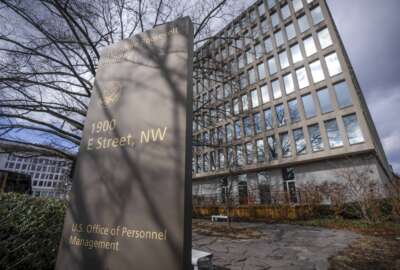Obama criticizes state laws that hurt broadband competition
By JIM KUHNHENN Associated Press CEDAR FALLS, Iowa (AP) — Wading into a states’ rights dispute over Internet access, President Barack Obama on Wednesday...
By JIM KUHNHENN
Associated Press
CEDAR FALLS, Iowa (AP) — Wading into a states’ rights dispute over Internet access, President Barack Obama on Wednesday called for the repeal of laws that prevent local communities from creating their own broadband networks.
Obama, for the second time in three months, cast himself as an antagonist to large cable and telephone companies that provide the bulk of the nation’s Internet service.
Obama said faster speeds would create jobs and allow local businesses to compete in the global economy. “Today high-speed broadband is not a luxury, it’s a necessity,” Obama said from a storage area at Cedar Falls Utilities, with shelves full of coiled wire and other equipment.
Obama is encouraging the Federal Communications Commission to pre-empt state laws that stifle competition and said his administration will work to cut red tape so more communities can get connected.
“In too many places across America, some big companies are doing everything they can to keep out competitors,” Obama said in Cedar Falls, which he credited with having one of the fastest networks in the world after fiber optic upgrades throughout the city. “Today, I’m saying we’re going to change that. Enough’s enough.”
Obama said his administration will provide technical and financial assistance to towns and cities that want to improve Internet service for their residents. The modest proposals do not require congressional approval and are part of a series of measures Obama is rolling out before his State of the Union address next week.
His stance is at odds with major cable and telephone companies such as AT&T, Comcast and Time Warner Cable Inc. that currently provide Internet service, often with little or no competition. Obama has already angered the industry by calling for new FCC rules that treat Internet service providers as public utilities.
An industry lobbying group, CTIA-The Wireless Association, said its members are committed to expanding broadband but criticized Obama’s approach.
“The president’s focus today on using taxpayer money to compete with commercial providers, which are pouring billions in private capital every year into U.S. broadband infrastructure and jobs, is the wrong path forward,” association president Meredith Attwell Baker said in a statement. “The wireless industry has invested $100 billion in the last four years alone. In such a vigorously competitive market, government-owned networks would only serve to chill private-sector investment, tilt the competitive playing field and harm consumers.”
Nineteen states place restrictions on municipal broadband networks, many with laws encouraged by cable and telephone companies. Advocates of those laws say they are designed to protect taxpayers from municipal projects that are expensive, can fail or may be unnecessary.
The National Governors Association and the National Conference of State Legislatures have urged the FCC not to pre-empt state laws on broadband.
The FCC is already considering requests for Chattanooga, Tennessee, and Wilson, North Carolina, to prevent state laws from blocking the expansion of their broadband projects. FCC Chairman Tom Wheeler said in June that local communities that want to provide their own broadband service “shouldn’t be stopped by state laws promoted by cable and telephone companies that don’t want that competition.”
A new White House report says that while 94 percent of Americans living in urban areas can purchase an Internet connection of 25 megabits per second, only 51 percent of Americans in rural areas have access to such Internet speeds.
The report also says that because of lack of competition three out of four Americans lack a choice for such Internet service.
“Tens of millions of Americans have only one choice for that next-generation broadband. So, they’re pretty much at the whim of whatever Internet provider is around,” Obama said.
The White House also announced that the Commerce Department would promote greater broadband access by hosting regional workshops and offering technical assistance to communities. The Agriculture Department also will provide grants and loans of $40 million to $50 million to assist rural areas.
A council comprising more than a dozen government agencies will also seek to remove regulatory and policy barriers that hinder broadband competition, the White House said.
Copyright 2015 The Associated Press. All rights reserved. This material may not be published, broadcast, rewritten or redistributed.
Copyright © 2025 The Associated Press. All rights reserved. This website is not intended for users located within the European Economic Area.






